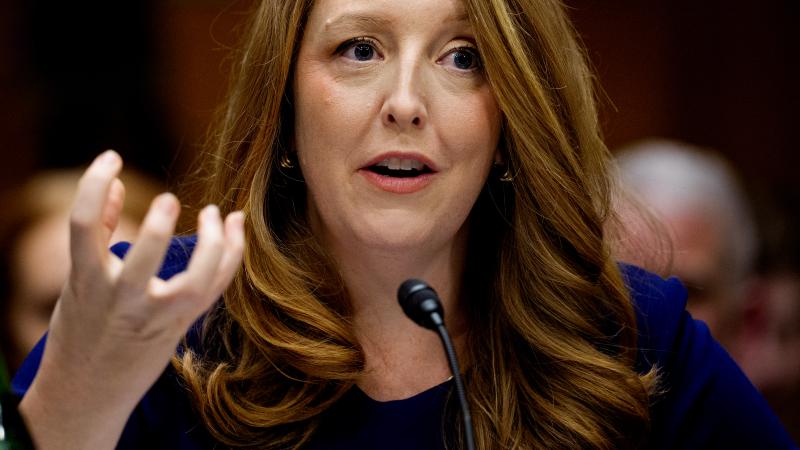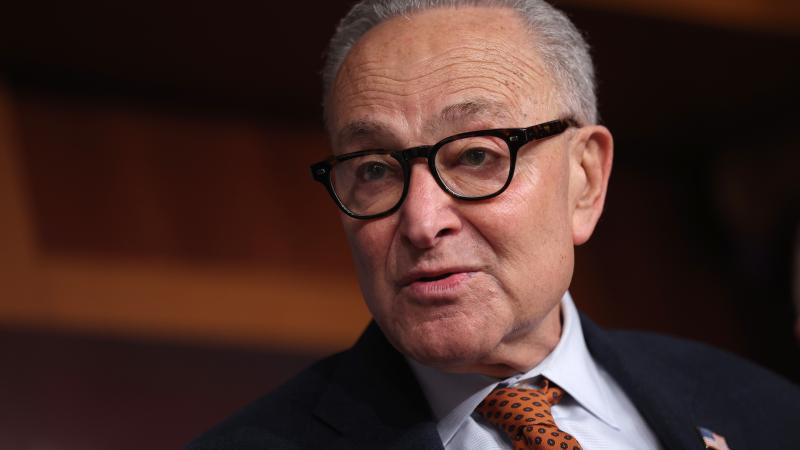'The Squad' members Omar and Tlaib facing tough primary battles
The progressive lawmakers' past controversy over Israel could harm their support among Jewish Democrats in their districts.
Democratic voters will decide the future of Reps. Rashida Tlaib and Ilhan Omar next month when they face off against tough primary opponents. The two have become household names as part of the group of four freshman female progressive lawmakers known as "The Squad."
Tlaib's challenger in Michigan's 13th Congressional District Aug. 4 primary contest is Detroit City Council President Brenda Jones. Tlaib beat Jones in the 2018 primary race for the full-term replacement of the late Rep. John Conyers.
Jones had previously won the special election to finish out Conyers' term after the longtime congressman resigned from office in December 2017 amid allegations he had sexually harassed female staffers and settled a harassment claim with taxpayer funds.
Jones has reportedly raised $135,000 while Tlaib has raised $2.8 million, according to OpenSecrets.org. However, Jones has picked up some key endorsements, including Rev. Wendell Anthony, the president of the Detroit chapter of the NAACP, and Ian Conyers, the nephew of the late Rep. Conyers.
In a recent interview, Jones referenced Tlaib's national profile and said she's not "interested in being a rockstar" but wants to focus on bringing federal funding to the district.
"You can be vocal, but the things that were being done — like calling the president a 'MF' or booing Hillary — every time something like that happened, I was getting calls from people saying, 'You're more professional than this,'" Jones said in a recent interview about Tlaib.
As the primary race enters the homestretch, Tlaib criticized Jones for not living in the 13th district. It is currently not a requirement to live in the district to run for the seat. A candidate must live in the state, be at least 25 years old, and have been a citizen of the United States for at least 7 years.
"At least I live in the 13th Congressional District, unlike my opponent," Tlaib tweeted on Monday.
Omar, on the other hand, is trailing in fundraising totals against Antone Melton-Meaux ahead of the Aug. 11 primary for Minnesota's 5th congressional district. Melton-Meaux is a lawyer who hasn't held elected office before.
Melton-Meaux raised about $3.2 million in the last quarter compared to about $500,000 for Omar.
Omar has been endorsed by House Speaker Nancy Pelosi, state House Speaker Melissa Hortman, and Minnesota Attorney General Keith Ellison, who used to represent Omar's district.
Despite Tlaib and Omar's national name recognition, the primary races will ultimately come down to local issues, according to David Dulio, professor of political science at Oakland University in Michigan.
"Congressional races are generally about local issues," Dulio told Just the News. "Sure, the elections can be nationalized, as in 2018, but when it comes to these primaries, I think they are about who can best represent the district.
"[Tlaib] criticized her opponent for not living in the district's boundaries ... so I see that as an argument about who can best represent the district. Of course, national profiles can certainly help, especially with things like name recognition and fundraising. Those will likely be big helps to Reps. Omar and Tlaib in their upcoming elections."
Omar has found herself at the center of controversy in the past over her comments about Israel.
Last year, Omar faced backlash after tweeting about the Israeli lobby's influence, writing, "It's all about the Benjamins, baby." Omar apologized for her comments.
Tlaib has also been the subject of controversy due to her comments about the Holocaust.
"There's kind of a calming feeling I always tell folks when I think of the Holocaust, and the tragedy of the Holocaust, and the fact that it was my ancestors, Palestinians, who lost their land and some lost their lives, their livelihood, their human dignity, their existence in many ways, have been wiped out, and some people's passports," Tlaib said last May.
"I mean, just all of it was in the name of trying to create a safe haven for Jews," Tlaib continued, "post-the Holocaust, post-the tragedy and the horrific persecution of Jews across the world at that time, and I love the fact that it was my ancestors that provided that — right? — in many ways. But they did it in a way that took their human dignity away, right, and it was forced on them."
In August 2019, both lawmakers were restricted by the Israeli government from entering Israel. Tlaib was later granted permission to visit her grandmother in the West Bank but ultimately decided not to go.
It remains to be seen whether their past controversy over Israel has damaged their support among Jewish Democrats in their districts.
















